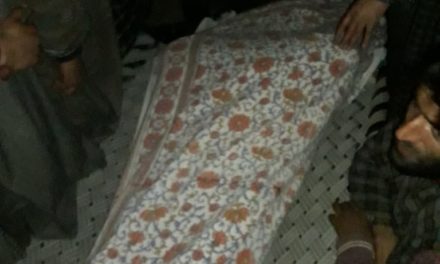![]()
Have taken various steps for safety of women: Union MoS Home; Exorbitant use of social media main reason: Officials
Srinagar, Jul 28 (KNO): In a shocking revelation by the Centre, almost 10,000 women have gone missing from J&K from 2019 to 2021 with officials citing exorbitant use of social media as the main reason behind the missing cases.
In the Parliament, the government of India revealed that around 10,000 women have gone missing in Jammu and Kashmir in three years from 2019.
In response to a question in Rajya Sabha, the Minister of State for Home Ajay Mishra, as per news agency—Kashmir News Observer (KNO), informed the parliament that 9,765 women have gone missing from their homes in Jammu and Kashmir between 2019 to 2021.
In these three years, there were 1148 cases of missing girls below the age of 18 and 8,617 women aged above 18 women have gone missing.
While giving yearly data, the MoS Home said that 355 girls and 2,738 women went missing in year 2019, followed by 350 girls and 2,701 women in 2020 and 443 girls and 3,178 women in year 2021.
As per the data available with KNO just around 3300 women had gone missing in J&K from 2016-2018 while the number has tripled in the next three years from 2019-2021.
As per the data, 943 women went missing in J&K year 2016, 1,044 in 2017 and 1,335 in 2018.
Meanwhile the Government of India said that they have taken a number of initiatives for the safety of women across the country.
“The Criminal Law (Amendment), Act 2013 was enacted for effective deterrence against sexual offences. Further, the Criminal Law (Amendment) Act, 2018 was enacted to prescribe even more stringent penal provisions including death penalty for rape of girls below the age of 12 years. The Act also inter-alia mandates completion of investigation and filing of charge sheet in rape cases in 2 months and trials to be completed in 2 months,” MoS home said in Rajya Sabha.
“Emergency Response Support System provides a pan-India, single internationally recognized number (112) based system for all emergencies, with computer aided dispatch of field resources to the location of distress and the Ministry of Home Affairs (MHA) has launched a cyber-crime reporting portal on 20th September, 2018 for citizens to report obscene content besides that MHA has launched the “National Database on Sexual Offenders” (NDSO) on 20th September 2018 to facilitate investigation and tracking of sexual offenders across the country by law enforcement agencies,” he said.
“MHA has launched an online analytic tool “Investigation Tracking System for Sexual Offences” for Police on 19th February 2019 to facilitate them to monitor and track time-bound investigation in sexual assault cases in accordance with Criminal Law (Amendment) Act 2018, in order to improve investigation, MHA has taken steps to strengthen DNA analysis units in Central and State Forensic Science Laboratories. This includes setting up of State-of-the-Art DNA Analysis Unit in Central Forensic Science Laboratory, Chandigarh. MHA has also sanctioned setting-up and upgrading of DNA Analysis units in State Forensic Science Laboratories after gap analysis and demand assessment and MHA has notified guidelines for collection of forensic evidence in sexual assault cases and the standard composition in a sexual assault evidence collection kit. To facilitate adequate capacity in manpower, training and skill building programs have been undertaken for Investigation Officers, Prosecution Officers and Medical Officers. Bureau of Police Research & Development has distributed 14,950 Sexual Assault Evidence Collection Kits to States/ UTs as orientation kit as part of training,” he added.
“MHA has also approved two projects for setting up and strengthening of Women Help Desks in Police Stations and Anti- Human Trafficking Units in all districts of the country and the Ministry of Home Affairs have issued advisories from time to time with a view to help the States/UTS to deal with crimes against women, which are available at www.mha.gov.in. while the Ministry of Women & Child Development has set up 733 One Stop Centres in the country. These centres provide integrated support and assistance to women affected by violence and in distress, under one roof and provide an integrated range of services including medical aid, legal aid, temporary shelter, police assistance, psycho-social counselling,” MoS said.
Meanwhile, officials who spoke to KNO on condition of anonymity said that exorbitant influence of social media leading to elopement with strangers is the main cause for the rise in missing cases among the female population while few cases are also related to kidnapping and other issues.
They said most of these women are brought back after cases are being registered and eloping with strangers whom they met on different social media apps is the main reason in most of the cases.
“Women having weak family bond are more prone to it besides that we must have a rethinking on the usage of social media,” they said—(KNO)

























